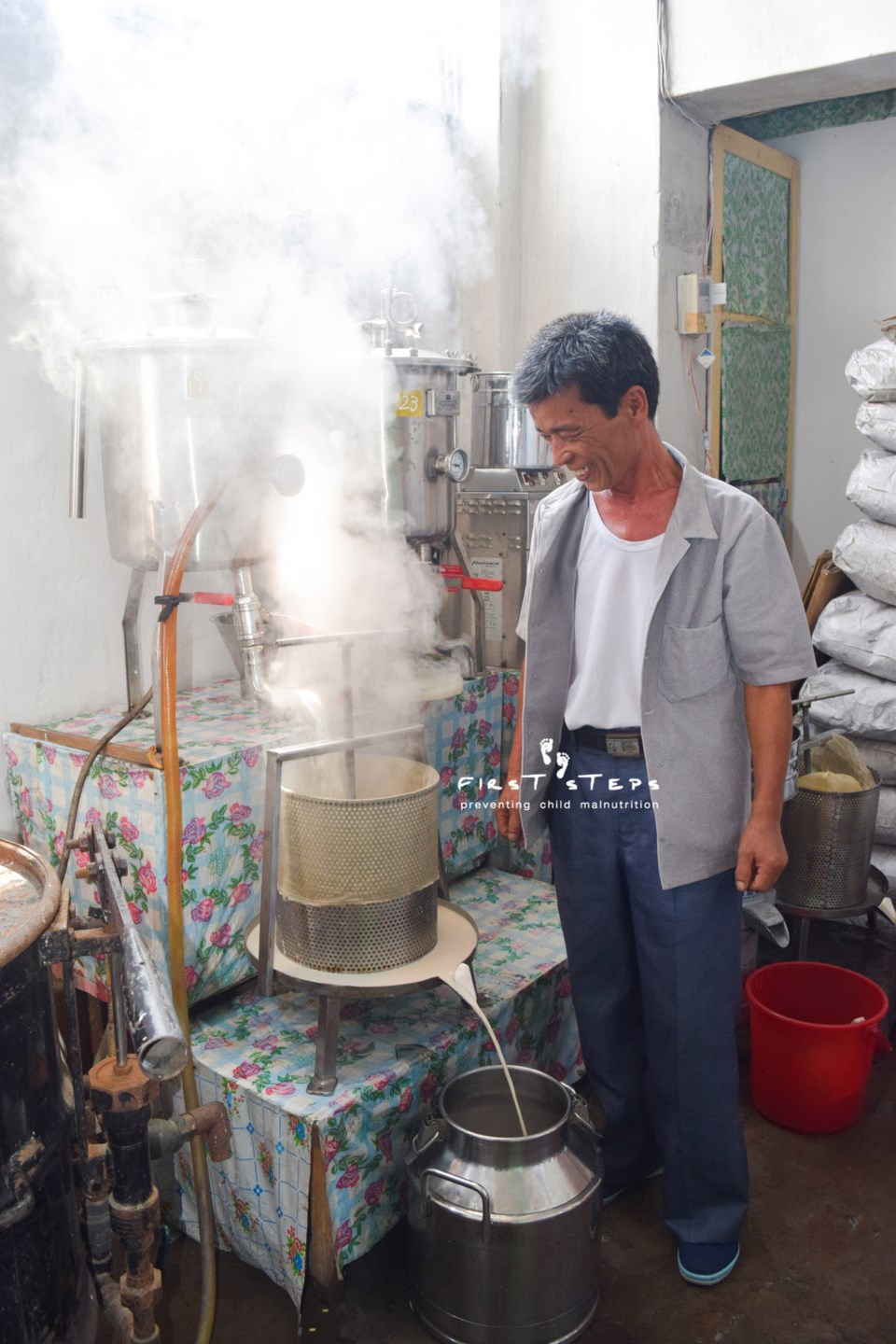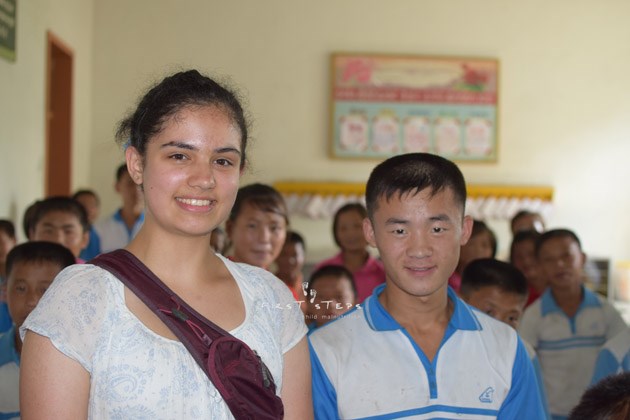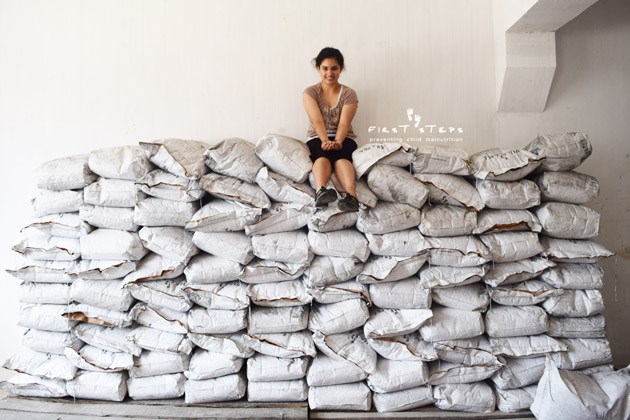At first glance, Grade 11 Handsworth student Shaunti Bains appears to be a typical teen.
She’s an avid reader of sci-fi, fantasy and comic books (Spider-Man is her favourite, although the Dark Knight is giving Spidey a run for his money).
But across the world, in the hermit kingdom of the Democratic People’s Republic of Korea, Bains is a real-life hero.
She has spent more than half of her life fundraising and feeding malnourished kids, and she recently returned home from a trip to North Korea with First Steps, a non-profit that donates soy beans and equipment to process nutrient-rich soy milk.
The pariah state is best known for the dictatorial Kim dynasty and their combative rhetoric towards the West, but for Bains, it’s a matter of nutrition, not geopolitics.
“If you look what soy beans contain, they’ve got all the essential amino acids, minerals. I know there’s iron in there. There’s some good carbohydrates. There’s some really good stuff,” she said.
Bains’ visit included stops at orphanages, boarding schools, day cares, health clinics and soy milk factories beyond count, where they got to check in on the supplies and maintain the equipment supplied by First Steps.
First Steps collects donations, which are used to purchase soy beans, soy milk processing machines and packets of micronutrients dubbed “Sprinkles.” The supplies are then distributed to school-age children, infants and expectant mothers in North Korea.
A $30 donation buys a bag of soy beans, which can provide 30 kids with a cup of soy milk per day for a month. The Canadian made VitaCow and VitaGoat machines grind, cook and filter the soybeans into soy milk. The $7,000 electricity-powered VitaCow typically produces 2,000 cups of soy milk per day. The VitaGoat, which costs about $4,000 and runs on burning biomass, can provide 1,500 kids with their daily cup.
Bains’ philanthropy started early. At six, she founded Pitter Pats, a kids’ club that fundraises for First Steps.

“The whole point is to get kids involved – kids helping kids. I noticed that when kids get involved, the adults sort of feel obligated to help too,” Bains said with a laugh.
Through the club’s newsletter, Pitter Pats has reached thousands of kids, according to Susan Ritchie, First Steps’ founder and executive director. Ritchie founded First Steps in 2001 after seeing the malnutrition first-hand as an interpreter for a Canadian delegation to the country.
In 2014, the charity raised $860,000 and 81 per cent of their expenses went into programming, according to filings with the Canada Revenue Agency.
That meant 65 tonnes of soybeans and numerous pieces of equipment, stainless steel storage cans and detergent – though the charity aims to direct most of its donations to things North Koreans can procure from within their own country.
“On any given day, we are reaching approximately 100,000 children with a cup of soy milk,” Ritchie said.
Bains and Ritchie met through First Baptist Church in Vancouver. Bains’ grandmother, Linda Zlotnik, made a similar trip with Ritchie 11 years ago.
Ritchie invited Bains to join her on the most recent of First Steps’ quarterly visits to North Korea so she could see first-hand the results of the work she’s done.
“She’s been very committed from a young age. I have always wanted her to come for her to see how she is literally changing lives in North Korea, and for the children that she’s helping to have a chance to meet her,” Ritchie said. “When I introduced who she was and explained what she had been doing, the people were really astonished.”
Bains got to interact with the kids in the orphanages and boarding schools, using the government-appointed chaperones as interpreters. What struck her was how much smaller the North Korean kids were, their growth stunted through malnutrition.
“I’m like the size of two of them, even if they’re older than me. They’re that malnourished,” she said. “I noticed how tiny the little desks are. I don’t think I could sit in one of them.”
Still, they managed to communicate as kids do, albeit with some unique challenges to overcome.
“I’d ask them ‘What are your favourite colours? Do you play sports?’ Stuff like that. Honestly, I think some of them were maybe a bit scared of me because I was this huge Canadian,” she said.
Beyond the culture shock, Bains noticed shadows of the state. Not all schools and daycares are equal. Not surprisingly, the ones that have been paid a visit by the reigning Kim have been dressed up.
“They go to all this trouble but when you look at it, you know it’s just for show because the leader went there. And there’s another place and the leader didn’t go to, so who cares, right?” she said. “The contrast is a bit disturbing because you could have spent some of this money on food for the kids.”
While government communications had an air of having been “made up,” Bains said she had no doubts about the genuine passion and sense of purpose demonstrated by the workers producing the soy milk, Bains said.
“There was a woman who had worked there for 40 years. We interviewed her and asked ‘What are your hobbies?’ She said ‘My hobby is making soy milk for children,’” Bains said. “It’s pretty incredible how dedicated their workers are there. Their lives revolve around making soy milk for the children. They’re really proud of what they do. It’s much more than just a job for them. It’s something they can be proud of because they know what they do is helping.”
The trip also gave Bains some perspective on the daily lives of North Koreans. Under such tight supervision and with state propaganda constantly reminding citizens of the greatness of Kim Jong Un, Kim Jong Il and Kim Il Sung, it’s hard to get a read on North Koreans’ understanding of their own country and of the wider world, Bains said.
“You don’t really know what they think of the situation with the leader because they’re not allowed to say anything negative. You don’t know if they believe the positive things they say or if they’re saying them because they have to,” she said. “The people don’t seem sad or anything but at the same time, I don’t think they know what they’re missing. This is all they’ve had.”
Based on her experiences, Bains said it would be a large misconception on the part of Westerners to assume the average North Korean has the same thirst for war as the ruling regime appears to have.
That sentiment is echoed by Ritchie, who finds the donors aren’t interested in the politics of North Korea – just the people who are in need of help.
“There are people who recognize that there are people there, just like us. Parents who want the best for their children, who live in challenging circumstances and we are thinking about them and praying for them and want to help them,” she said.
Like many philanthropists, Bains is finding there’s a bittersweet side to her work – when you’ve reached the end of what you have to give.
“They’re really grateful for everything you’ve sent but you can only send so much. You see the benefit of it. The kids are so much healthier when they’ve had it,” she said. “Even though they could use more, we just aren’t able to help everyone. We have limitations. Saying ‘Sorry, we can’t help you’ was probably the worst part,” she said.

Though it may seem like a lot for someone who’s just 16, Bains’ approach to helping others is something that could be easily replicated by anyone, she said.
“I think when you know of an issue happening and you’re not helpless to do something about it, it seems really silly not to do anything. I know people always get frustrated when people in power don’t do anything but ordinary people actually have a lot of power to help this, so why not?”



